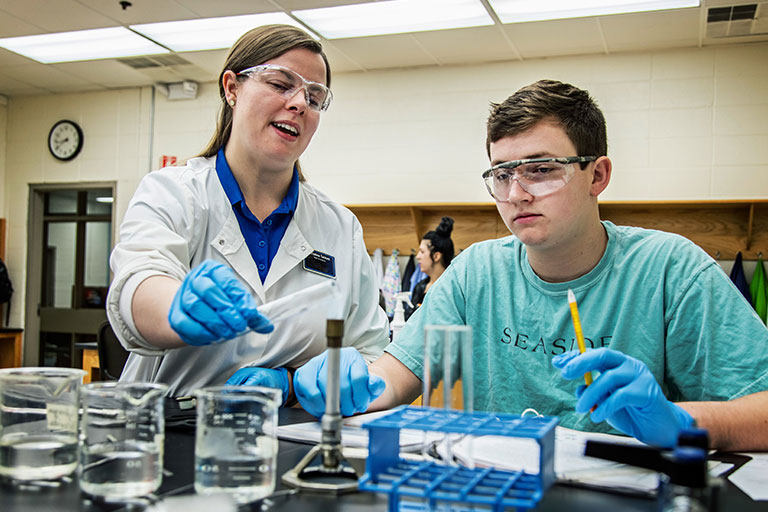Connect your people skills with technical know-how to collect specimens from the patient and perform laboratory tests in many areas of the clinical laboratory, including urinalysis and serology.
What is a Physician Office Laboratory Assistant (POLA)?
The Physician Office Laboratory Assistant (POLA) certificate provides you with the opportunity to acquire the necessary skills to work under the supervision of a registered clinical scientist or pathologist in a clinical laboratory, hospital, or other health agency setting. The POLA student learns to collect specimens from the patient and perform laboratory tests in many areas of the clinical laboratory, including urinalysis and serology. When you complete the POLA certificate, you will also be able to complete the Phlebotomist and Phlebotomy for the Healthcare Worker certificates. This accelerated training program is provided by HCTC's Workforce Solutions department.

Program Shadowing or Class Tours
Getting Started
What are my degree, diploma, and certificate options?
How Do I Pay For This?
What Else Do I Need to Know?
Additional Information
The Medical Lab Tech Certificate programs are 9 credit hours (completion will earn all three certificates).
- Tuition and Fees: $1,827
- Book, Tools and other Materials: $500
Learn about the many options to pay for college including the Work Ready Scholarship.
Phlebotomist and Phlebotomy for the Health Care Worker Certificates
- Demonstrate professionalism.
- Follow established clinical laboratory safety guidelines.
- Demonstrate effective written and oral communication with supervisors, peers, physicians and patients.
- Demonstrate an awareness of ethical considerations in making value choices.
- Carry out an established quality assurance program.
- Perform routine capillary and venipuncture procedures.
Physician’s Office Laboratory--Certificate
- Demonstrate professionalism.
- Follow established clinical laboratory safety guidelines.
- Demonstrate effective written and oral communication with supervisors, peers, physicians and patients.
- Demonstrate an awareness of ethical considerations in making value choices.
- Carry out an established quality assurance program.
- Perform routine capillary and venipuncture procedures.
- Perform minimum complexity testing in the clinical laboratory.
Medical Lab Tech Courses
PHB 170
MLT 112
MLT 115
PHB 155
Applied Phlebotomy
Urinalysis
Serology
Phlebotomy Clinical
3
2
2
2
Program Shadowing or Class Tours

